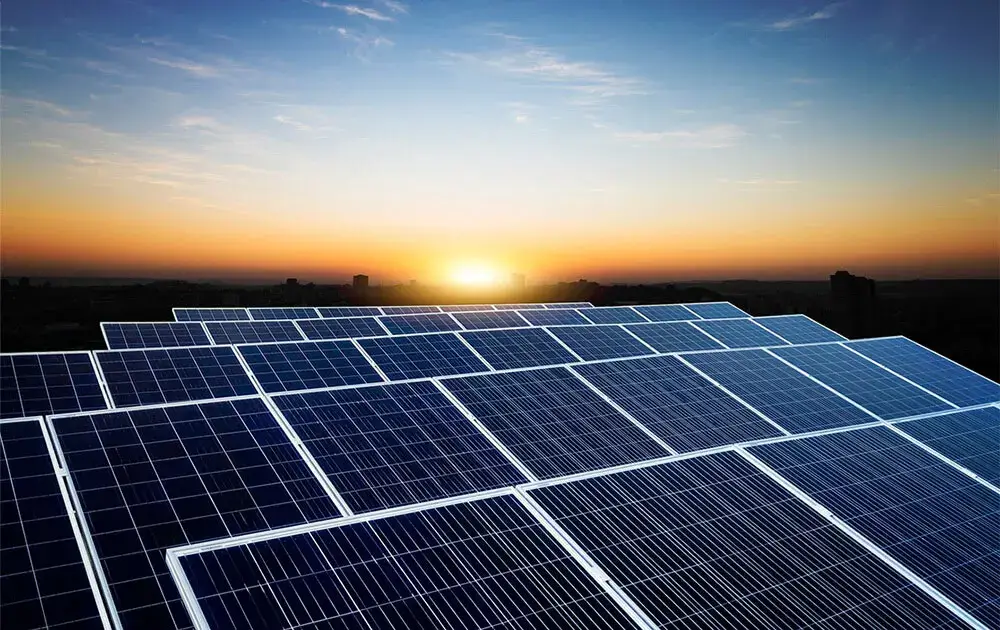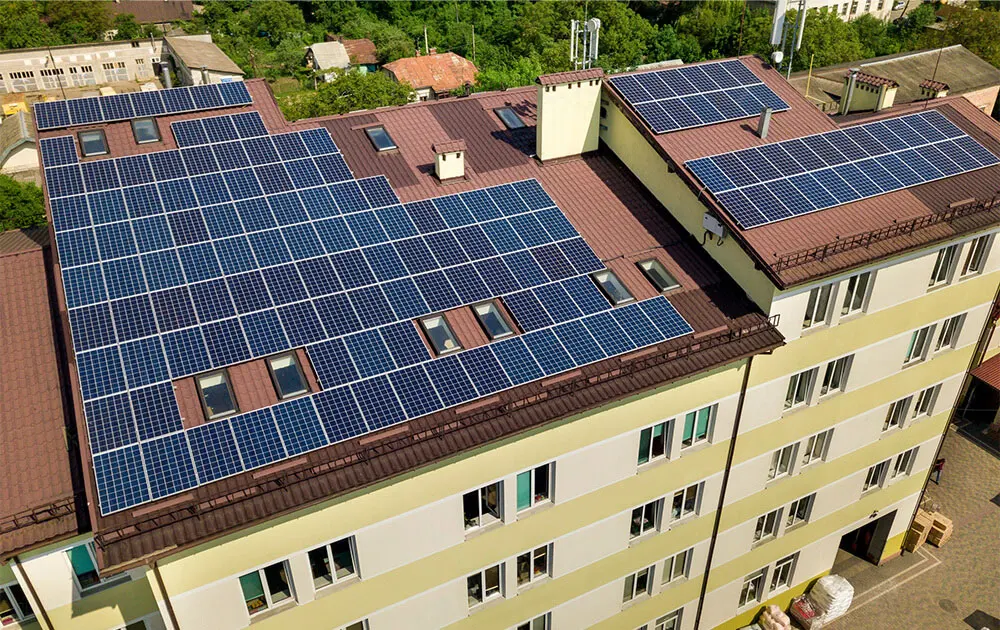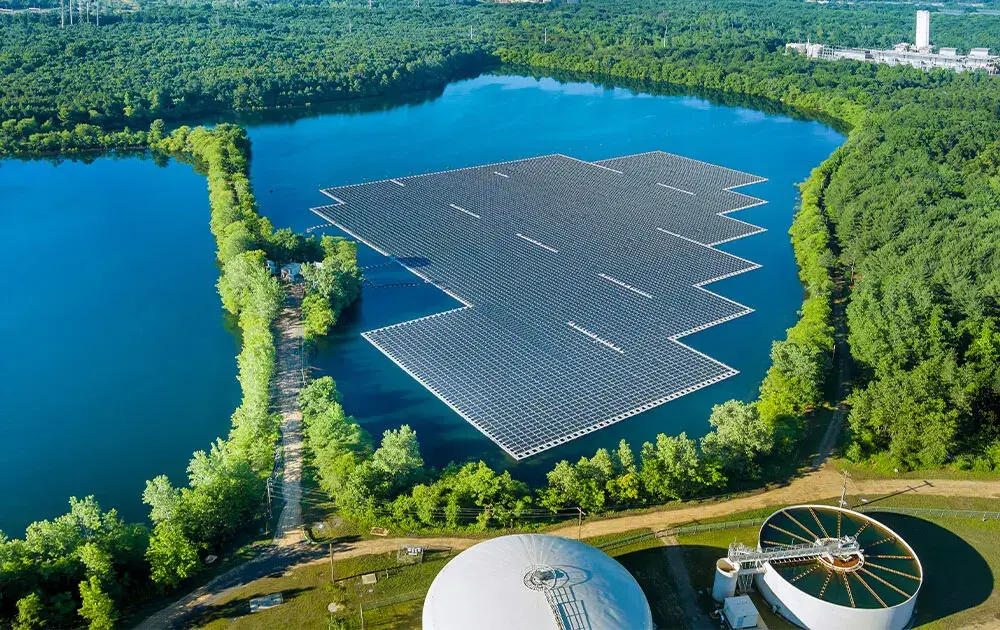Welcome to our technical newsletter- Solar Progress.
Solar EPC (Engineering, Procurement, and Construction) Solutions. In this newsletter, we will explore the latest trends and developments in the solar EPC industry and discuss some of the challenges and solutions.
First, let's define what we mean by Solar EPC. EPC stands for Engineering, Procurement, and Construction. In the context of solar, EPC refers to a turnkey solution that includes the design, procurement, and construction of a solar power plant. The EPC contractor is responsible for all aspects of the project, from site selection to commissioning.
As the demand for solar energy grows, so does the need for efficient and reliable solar EPC solutions. EPC companies are responsible for designing, building, and commissioning solar power plants, ensuring that they operate at maximum efficiency and generate the expected output. In this regard, EPC companies play a critical role in the solar energy value chain, and their services are in high demand.

Types of Solar EPC Solutions:

Ground-Mounted Solar Plants
These are large solar power plants that are typically installed on open land. Ground-mounted solar plants are more efficient than rooftop solar systems because they can be designed to optimize the orientation and angle of the solar panels.
Rooftop Solar Systems
These are solar panels installed on the roof of a building. Rooftop solar systems are ideal for commercial and industrial buildings that have large, flat roofs. They can also be installed on residential buildings.


Floating Solar Plants
These are solar panels installed on water bodies, such as lakes or reservoirs. Floating solar plants are gaining popularity because they can help to reduce evaporation from water bodies and provide shade to aquatic life.
Challenges:
One of the biggest challenges faced by EPC companies is the need to reduce costs while maintaining quality and efficiency. To address this challenge, many EPC companies are turning to advanced technologies such as automation, artificial intelligence (AI), and machine learning. These technologies can help EPC companies optimize their processes, reduce costs, and improve project outcomes.
Another challenge is ensuring the durability and reliability of solar panels and components. Extreme weather conditions, such as high winds and heavy rainfall, can damage solar panels and affect their performance. To address this issue, EPC companies are investing in high-quality materials and components and implementing robust quality control processes to ensure the durability and reliability of their solar projects.
Solar EPC (Engineering, Procurement, and Construction) solutions have seen significant advancements in recent years, driven by the increasing demand for clean and renewable energy.
Some of the key advances in solar EPC solutions include:
Improved solar panel technology:
Solar panel technology has seen tremendous improvements in recent years, with higher efficiency, greater durability, and lower costs. These improvements have made solar energy more accessible and affordable, which has led to a wider adoption of solar EPC solutions.
Smart solar monitoring systems:
Advances in sensor technology and data analytics have led to the development of smart solar monitoring systems that can detect and diagnose issues in real-time. This helps to optimize system performance and reduce downtime.
Energy storage solutions:
With the increasing popularity of solar energy, there is a growing need for energy storage solutions to address the intermittent nature of solar power. Advances in battery technology have led to the development of high-capacity and low-cost energy storage solutions that can store excess solar energy during the day and release it when needed.
Digital design and modeling tools:
Advances in digital design and modeling tools have made it easier to plan, design, and optimize solar EPC solutions. These tools use data analytics and machine learning to simulate different scenarios and optimize system performance.
Collaborative platforms:
Collaborative platforms that allow different stakeholders to work together more efficiently and effectively have also emerged. These platforms provide a centralized hub for communication, collaboration, and project management, which can help to streamline the EPC process and reduce costs.
Overall, the advances in solar EPC solutions have made solar energy more accessible, affordable, and reliable. As the demand for clean and renewable energy continues to grow, we can expect to see further advancements in solar EPC solutions in the coming years.
Solar EPC industry is evolving rapidly, driven by the growing demand for clean and renewable energy. EPC companies are facing various challenges but are leveraging advanced technologies, high-quality materials, and sustainable practices to overcome them. We hope you found this newsletter informative and look forward to bringing you more updates on the latest developments in the solar EPC industry.
In conclusion, solar EPC solutions are an excellent way to harness the power of the sun to generate clean energy. With advances in solar technology, these solutions are becoming more efficient and cost-effective. Whether it's a ground-mounted solar plant, rooftop solar system, or floating solar plant, solar EPC solutions offer a sustainable energy solution for the future.